

How to decide between postgraduate research and coursework
It can be a little tricky figuring out which postgraduate degree is for you. That’s why we’ve done the work for you to clarify the differences between a coursework degree and a research degree, and where each could take your career.
Tl;dr: The main difference between these two styles is coursework has classes and research has a thesis.
Postgraduate coursework: advanced classes
In a nutshell: an advanced continuation of undergrad-style learning.
Choosing a coursework degree means you’ll attend lectures and tutorials, complete assignments and sit exams – just like your first degree. You’ll be taught discrete units that are part of a set program and at a higher academic level than your undergrad.
Coursework degrees aim to deepen your knowledge and enhance your undergraduate degree with postgraduate training, focusing you towards a specific profession. Alternatively, you can use your undergraduate degree to pivot and pursue a new area of study at postgraduate level.
For instance, you may have completed a Bachelor of Arts majoring in English and Japanese, then realised you’d like be a high school teacher, so you enrol in a Master of Teaching (Secondary) .
Or perhaps you did a Bachelor of Science majoring in Engineering Science and after working for a couple of years, you now want to start your own business. Enrolling in a Graduate Certificate in Entrepreneurship and Innovation could get you there.
Also bear in mind, some coursework courses can involve a research element such as the completion of a minor thesis. This forms part of training your time management and written skills.
If you’re looking to complete a degree part time or solely online, you can find a postgraduate coursework degree to suit you. There are graduate certificates, graduate diplomas and master’s degrees, and we’ve explained the difference between these too.
Postgraduate research: independent thesis
In a nutshell: solo research project to produce an original thesis.
Taking on a postgraduate research degree provides you with the unique opportunity to follow your interest in an area of research and contribute to the field.
You’ll work on your own project, under the guidance of an academic supervisor who you have chosen, with the aim of producing, presenting and submitting a final thesis. This final thesis is the culmination of your original research and investigation – an original contribution to knowledge.
You can often undertake any project of your choosing, as long as you can find a supervisor to connect with. Once you’ve found a potential supervisor, meet with them to discuss your project proposal and see if they agree to supervise you.
If you’re interested in completing a PhD or are thinking about a career in academia, a research degree is a popular decision. This type of study enables you to demonstrate your capacity to conduct research independently and form a distinct contribution to an area.
So what’s ‘honours’, then?
Honours is the opportunity to extend your undergraduate degree by a year – a sort of bridging year between undergrad and postgrad. The benefit is setting yourself apart from other undergraduate grads, as employers value the skills gained from the independent research project you’ll complete.
Honours is reserved for students who demonstrate strong academic performance in their final-year units. You may be invited to consider honours or you can apply directly . Students considering a research master’s or PhD are strongly encouraged to complete an honours year as a research training exercise and a taster of what’s to come in the research life.
Still can’t decide? See what some of our coursework and research graduates have to say .
Explore more article topics
- Research and phd
Don't miss a moment
Stay up-to-date with the latest information about studying at UWA including, our courses and career pathways, event and webinars, key dates, what uni life is really like, tips for studying plus, so much more!
Related stories
Continue seeking wisdom.
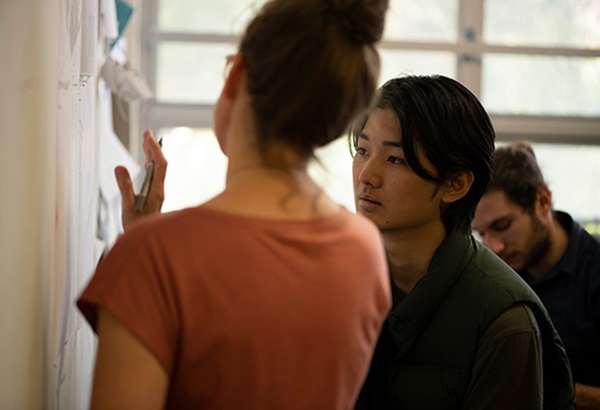
Webinar Invitation: Explore the UK and other Study Destinations
Course-based Vs Research-based Master’s Programs || Which Is Best For You?
- Share on Facebook
Table of Content
If getting a master’s degree is in your academic or career plans, then you need to fully understand what it entails. Getting a master’s degree is a great way to advance your career or kick-start a new career. However, there are different types of master’s degrees offered by universities. This article will discuss course-based and research-based masters to help you understand what they mean and how they are different.
Course-based programs
Course-based master’s degree programs are designed for students who want to learn new skills, gain knowledge, and advance their careers. These structured programs offer students a set of courses to complete for their degree. The courses are designed to provide students with the necessary skills and knowledge to succeed in their chosen careers.
Research-based programs
Research-based master’s degree programs are designed for students who want to conduct research, develop new knowledge, and contribute to their field. These programs are research-intensive and require students to conduct original research and write a thesis or dissertation. The research conducted should contribute to the knowledge base of the field.
Top Frequently Asked Questions on Study Abroad For International Students
Differences between Course-Based and Research-Based Master’s Degree Programs
Though both programs have their unique advantages, they are tailored to different career goals and learning styles. Here are four major differences between course-based programs and research-based degree programs:
- Approach to learning
The main difference between course-based and research-based master’s degree programs is the approach to learning. As earlier stated, course-based programs offer students a set of courses to complete for their degree. These programs are often referred to as taught master’s programs and are structured around a predetermined curriculum.
On the other hand, research-based programs are not structured, and students have to conduct their research independently. This program requires students to be self-motivated, independent, and have excellent research skills.

2. Duration
Another difference between course-based and research-based master’s degree programs is the length of time it takes to complete the program. Course-based programs typically take one to two years to complete, while research-based programs usually take two to three years to complete due to the time required for extensive research. Course-based programs are an excellent choice for people looking to advance their careers quickly.
5 Study Abroad Application Mistakes And How To Avoid Them
3. Purpose
Course-based master’s degree programs are designed to equip students with practical skills and knowledge directly applicable to their chosen profession. Students can choose from a variety of courses and tailor their programs to meet their interests and career goals.
Research-based programs, however, are research-intensive and require students to conduct original research and write a thesis or dissertation. Students have the freedom to choose their research topic and conduct their research independently. Research-based master’s degrees are best for students interested in pursuing academic careers or roles that require advanced research skills.
4. Curriculum and Assessment
While course-based programs may include a small research project, the emphasis is primarily on coursework. The majority of your time in a course-based program is spent attending lectures, seminars, and workshops. Assessment is primarily through exams, coursework, and projects.
Research-based or thesis-based programs are centred on independent research and academic exploration. The core of the program is the research thesis. The thesis serves as the culmination of the program, showcasing a student’s ability to conduct independent research, analyze data, and present findings coherently.
Now that you have an idea of the key differences between both master’s programs, you need to consider your learning style and career goals before choosing one that is right for you. If you’re looking to gain practical skills and enter a specific industry, then a course-based program will be a better choice, however, if your goal is to pursue a PhD, then, a more appropriate choice would be a research-based master’s.
Preparing to study abroad can be overwhelming, if you need further guidance on degree options, application requirements and schools to apply to for your degree or counselling regarding the best master’s degree program for you, please click here to chat with our counsellors.
You May Also Like: Choosing A University To Study Abroad || 5 Key Things To Consider
Get career and educational articles and insights from our weekly newsletter.
Thank you for subscribing.
Something went wrong.
We respect your privacy and take protecting it seriously

Recommended Reading

- Guest Article , Resources
6 New Policy Updates For Students Looking To Study In Canada
Top 10 high-demand careers in canada, uk global talent visa || all you need to know, the best of degrees & careers delivered to your inbox.

Study Arears
- Career Beam
Degrees & Careers is a community of counsellors that provides expert careers and education advice.
Get News, Scholarships, And more
- How it works

How Are Coursework And Dissertation Similar?
Published by Alvin Nicolas at April 9th, 2024 , Revised On April 23, 2024
The academic journey is a path paved with various challenges, and coursework and dissertations stand as two prominent milestones. While they may appear vastly different at first glance, a closer look reveals many similarities. Both coursework and dissertations play crucial roles in equipping students with the knowledge, skills, and critical thinking necessary for academic success. Let’s look into how coursework and dissertations are similar.
Coursework & Dissertations: Building Blocks Of Knowledge
A well-structured dissertation rests upon a solid foundation of knowledge acquired through coursework. Coursework acts as a stepping stone, introducing students to core concepts, theories, and methodologies within a specific discipline.
Through lectures, discussions, and smaller assignments, students develop a basic understanding of the field and its established research areas. This knowledge base serves as a springboard for the more in-depth research undertaken in a dissertation.
For instance, imagine a student pursuing a dissertation on the ethical implications of artificial intelligence (AI) . Their coursework in computer science and philosophy would have provided them with a grasp of AI functionalities and ethical frameworks.
This foundational knowledge becomes the launchpad for their dissertation research, allowing them to research deeper into specific ethical concerns surrounding AI development.
They Help Develop Research & Writing Skills
Both coursework and dissertations hone a student’s research and writing abilities, which are crucial tools for finishing academic studies. Coursework assignments, ranging from essays to research papers, equip students with the skills to:
Formulate Research Questions
Coursework often involves tasks that require students to identify and analyse problems within a specific field. This ability to frame research questions effectively translates directly to the dissertation stage.
Evaluate And Use Scholarly Sources
Coursework assignments typically necessitate the use of credible academic sources . Students learn how to find relevant research papers, critically evaluate their content, and integrate them into their writing. These skills form the bedrock for the extensive literature review required in a dissertation.
Develop A Sound Argument
Whether writing an essay or a dissertation chapter, students must build a clear and well-supported argument.
Coursework assignments provide opportunities to practice constructing arguments, presenting evidence, and drawing logical conclusions – all skills essential for crafting a compelling dissertation.
The experience gained from coursework allows students to approach their dissertations with a sharpened research arsenal. They become adept at navigating academic databases, critically analysing sources , and constructing a robust argument that contributes to their chosen field.
Hire an Expert Writer
Proposal and dissertation orders completed by our expert writers are
- Formally drafted in academic style
- Plagiarism free
- 100% Confidential
- Never Resold
- Include unlimited free revisions
- Completed to match exact client requirements
Cultivating Critical Thinking & Analysis
Coursework and dissertations both encourage critical thinking and analysis, fostering an inquisitive intellectual spirit. Through coursework assignments, students learn to:
Challenge Assumptions
Effective coursework often involves examining established ideas and perspectives. Students are encouraged to analyse arguments critically, identify potential biases , and form their own informed opinions.
This critical thinking skill becomes crucial in the dissertation stage, where students must critically evaluate existing research within their chosen field.
Analyse Evidence
Coursework assignments often involve interpreting data, weighing arguments, and drawing conclusions based on evidence. This ability to analyse evidence effectively paves the way for the rigorous research methodologies employed in dissertation writing.
Form Independent Judgements
Coursework discussions and assignments encourage students to engage with diverse viewpoints and develop their own well-reasoned arguments.
This ability to think independently and form independent judgments proves invaluable in dissertation research, where students must make original contributions to their field.
By cultivating these critical thinking skills, coursework prepares students for the independent research journey that forms the core of a dissertation.
Structure & Organisation
Both coursework assignments and dissertations adhere to established academic structures. This focus on organisation helps students develop clear communication skills and ensures the clarity and coherence of their work.
Logical Structure
Both coursework and dissertations follow a logical structure, typically starting with an introduction , progressing through well-developed body paragraphs, and concluding with a strong summary. This format ensures a clear flow of information and facilitates reader comprehension.
Proper Citation
Effective academic writing demands proper citation practices . Coursework assignments provide students with opportunities to practice essential citation styles such as APA, Harvard , or MLA. These skills are crucial for accurately referencing sources in a dissertation and avoiding plagiarism.
By mastering these structural elements, students learn to present their ideas in a clear and organised manner – a valuable skill that carries over into professional writing and research pursuits.
Coursework and dissertations are not isolated entities; they represent different stages along the path to academic success. Coursework provides the foundation of knowledge and hone the research and writing skills that are essential for crafting a compelling dissertation.
The skills and knowledge gained through coursework empower students to tackle the challenges of in-depth research and critical analysis demanded by a dissertation.
Conclusively, coursework and dissertations share a symbiotic relationship. Coursework equips students with the tools they need to complete their dissertations.
Frequently Asked Questions
How are coursework and dissertation similar.
Coursework and dissertations are both academic tasks requiring independent research and critical analysis. Both involve structured writing, referencing, and adhering to academic standards. They contribute significantly to a student’s final grade, assessing their understanding of a subject and ability to synthesise information. Both demand rigorous attention to detail and academic integrity.
What is the difference between coursework research and dissertation?
Coursework research typically involves shorter, structured assignments focusing on specific topics within a course. Dissertations, however, are in-depth, independent research projects undertaken at the culmination of a degree program, requiring original research, critical analysis, and contribution to existing knowledge in the field, often spanning many months.
What are the similarities between dissertation and thesis?
Dissertations and theses share similarities as scholarly research projects. Both involve in-depth investigation, critical analysis, and contribution to existing knowledge in a field. They require rigorous research methodology, extensive literature review, and adherence to academic standards. Additionally, both culminate in a formal written document defending the author’s findings.
Is dissertation part of coursework?
Typically, a dissertation is not considered part of coursework. Coursework generally refers to the structured assignments, projects, and assessments completed during a course. A dissertation is a separate, extensive research project undertaken at the end of a degree program, often representing a significant portion of the program’s requirements.
You May Also Like
The decision to pay someone to write your dissertation depends on individuals, balancing benefits like time saved with ethical considerations.
There’s no denying that managing projects can be one of the most rewarding yet challenging roles in any organization. From scope creep and stakeholder disengagement to poor budgeting and unrealistic deadlines, countless obstacles can throw your carefully planned project off course.
UK has many top-ranked universities in the world. Here are all the reasons why you should pursue your MBA degree in the UK.
USEFUL LINKS
LEARNING RESOURCES

COMPANY DETAILS

- How It Works

Research Basics: an open academic research skills course
- Lesson 1: Using Library Tools
- Lesson 2: Smart searching
- Lesson 3: Managing information overload
- Assessment - Module 1
- Lesson 1: The ABCs of scholarly sources
- Lesson 2: Additional ways of identifying scholarly sources
- Lesson 3: Verifying online sources
- Assessment - Module 2
- Lesson 1: Creating citations
- Lesson 2: Citing and paraphrasing
- Lesson 3: Works cited, bibliographies, and notes
- Assessment - Module 3
- - For Librarians and Teachers -
- Acknowledgements
- Other free resources from JSTOR
JSTOR is a digital library for scholars, researchers, and students.
Learn more about JSTOR
Get Help with JSTOR
JSTOR Website & Technical Support
Email: [email protected] Text: (734)-887-7001 Call Toll Free in the U.S.: (888)-388-3574 Call Local and International: (734)-887-7001
Hours of operation: Mon - Fri, 8:30 a.m. - 5:00 p.m. EDT (GMT -4:00)
Welcome to the ever-expanding universe of scholarly research!
There's a lot of digital content out there, and we want to help you get a handle on it. Where do you start? What do you do? How do you use it? Don’t worry, this course has you covered.
This introductory program was created by JSTOR to help you get familiar with basic research concepts needed for success in school. The course contains three modules, each made up of three short lessons and three sets of practice quizzes. The topics covered are subjects that will help you prepare for college-level research. Each module ends with an assessment to test your knowledge.
The JSTOR librarians who helped create the course hope you learn from the experience and feel ready to research when you’ve finished this program. Select Module 1: Effective Searching to begin the course. Good luck!
- Next: Module 1: Effective searching >>
- Last Updated: Apr 24, 2024 6:38 AM
- URL: https://guides.jstor.org/researchbasics
JSTOR is part of ITHAKA , a not-for-profit organization helping the academic community use digital technologies to preserve the scholarly record and to advance research and teaching in sustainable ways.
©2000-2024 ITHAKA. All Rights Reserved. JSTOR®, the JSTOR logo, JPASS®, Artstor® and ITHAKA® are registered trademarks of ITHAKA.
JSTOR.org Terms and Conditions Privacy Policy Cookie Policy Cookie settings Accessibility
- Search entire site
- Search for a course
- Browse study areas
Analytics and Data Science
- Data Science and Innovation
- Postgraduate Research Courses
- Business Research Programs
- Undergraduate Business Programs
- Entrepreneurship
- MBA Programs
- Postgraduate Business Programs
Communication
- Animation Production
- Business Consulting and Technology Implementation
- Digital and Social Media
- Media Arts and Production
- Media Business
- Media Practice and Industry
- Music and Sound Design
- Social and Political Sciences
- Strategic Communication
- Writing and Publishing
- Postgraduate Communication Research Degrees
Design, Architecture and Building
- Architecture
- Built Environment
- DAB Research
- Public Policy and Governance
- Secondary Education
- Education (Learning and Leadership)
- Learning Design
- Postgraduate Education Research Degrees
- Primary Education
Engineering
- Civil and Environmental
- Computer Systems and Software
- Engineering Management
- Mechanical and Mechatronic
- Systems and Operations
- Telecommunications
- Postgraduate Engineering courses
- Undergraduate Engineering courses
- Sport and Exercise
- Palliative Care
- Public Health
- Nursing (Undergraduate)
- Nursing (Postgraduate)
- Health (Postgraduate)
- Research and Honours
- Health Services Management
- Child and Family Health
- Women's and Children's Health
Health (GEM)
- Coursework Degrees
- Clinical Psychology
- Genetic Counselling
- Good Manufacturing Practice
- Physiotherapy
- Speech Pathology
- Research Degrees
Information Technology
- Business Analysis and Information Systems
- Computer Science, Data Analytics/Mining
- Games, Graphics and Multimedia
- IT Management and Leadership
- Networking and Security
- Software Development and Programming
- Systems Design and Analysis
- Web and Cloud Computing
- Postgraduate IT courses
- Postgraduate IT online courses
- Undergraduate Information Technology courses
- International Studies
- Criminology
- International Relations
- Postgraduate International Studies Research Degrees
- Sustainability and Environment
- Practical Legal Training
- Commercial and Business Law
- Juris Doctor
- Legal Studies
- Master of Laws
- Intellectual Property
- Migration Law and Practice
- Overseas Qualified Lawyers
- Postgraduate Law Programs
- Postgraduate Law Research
- Undergraduate Law Programs
- Life Sciences
- Mathematical and Physical Sciences
- Postgraduate Science Programs
- Science Research Programs
- Undergraduate Science Programs
Transdisciplinary Innovation
- Creative Intelligence and Innovation
- Diploma in Innovation
- Postgraduate Research Degree
- Transdisciplinary Learning
Coursework or research?
What's the difference between postgraduate degree coursework and higher degree research.
At UTS, you could pursue postgraduate studies by coursework or research.
Postgraduate Degree Coursework
Doing it by coursework means, you’ll attend classes, write assessments, sit for exams and work your way through a set of subjects – a structured program. You could potentially add a research project using your elective.
Programs offered through postgraduate coursework are:
Master of Quantitative Finance
Master of Science – offered in five majors and a no specific major.
Master of Science (Extension) – offered in five majors and a no specific major
Graduate Certificate in Science
Graduate Certificate in Mathematics
Higher Degree Research
Doing postgraduate study by research means, you’ll undertake supervised study and research, guided by an academic supervisor. You’ll work independently on your chosen project with the aim of producing, presenting and submitting a final thesis. The final thesis is your original research and investigation, backed by evidence.
Programs offered through higher degree research are:
Masters by Research - Science
Masters by Research - Mathematical Sciences
Doctor of Philosophy (PhD) - Science
Doctor of Philosophy (PhD) – Mathematical Sciences
So, what kind of projects can I undertake as my higher research degree?
You can undertake any project or discipline, as long as the Faculty and UTS has the expertise in the area, and the relevant supervisor agrees to supervise you.
We strongly encourage you to visit the Faculty’s research areas and use the Find a Supervisor tool, to search a supervisor of your research interest.
Find a Supervisor
Once you've found a potential supervisor, it's important to make contact with them to discuss your research project proposal andmake sure they agree to supervise you.
Are you still confused on which research project to undertake?
You can hear from some of our current and past research students’ experiences here . This may help you to decide what research project is right for you.
What if I change my mind, after...
I have started a postgraduate coursework program at UTS Science, but now I want to pursue a higher degree research?
You can transfer from your current UTS Science postgraduate coursework degree into the UTS Master of Science (Honours) . You’ll need to line up a faculty academic to be your supervisor. Entry into the Master of Science (Honours) is through an internal course transfer via the UTS Master of Science or UTS Master of Science (Extension). There is no direct entry into the UTS Master of Science (Honours).
I have started one of the UTS Science postgraduate coursework masters, e.g. Master of Science or Master of Science (Extension),or the Master of Quantitative Finance, but I can no longer continue my studies?
You can exit your degree through the UTS Graduate Diploma in Science or the UTS Graduate Diploma in Quantitative Finance, which are dependent on the number of subjects you have completed.
Want more information?
Attend a science and maths postgraduate info session.
Download the Science and Maths Postgraduate Course Guide . For information on the application process, here’s a step by step guide on how to apply .
Want to talk to someone?
Contact our course directors:
Ken Rodgers Higher Degree Research Programs Director [email protected]
Bernadette Saunders Postgraduate Coursework Programs Director [email protected]
UTS acknowledges the Gadigal people of the Eora Nation, the Boorooberongal people of the Dharug Nation, the Bidiagal people and the Gamaygal people, upon whose ancestral lands our university stands. We would also like to pay respect to the Elders both past and present, acknowledging them as the traditional custodians of knowledge for these lands.


- Current Students
- Give to UNE

Future Students
Scripting must be enabled to use this site., difference between postgraduate research and coursework, what is the difference between postgraduate coursework and postgraduate research programs.
There are a few key differences between postgraduate coursework and postgraduate research programs.
Postgraduate Coursework
Postgraduate coursework programs deliver content through a set unit program (similar to an undergraduate Bachelor degree), but at a more advanced level. Coursework will allow you to deepen your knowledge within a discipline, or to pursue a new or additional study area at an advanced level.
Postgraduate degrees which can be studied through coursework include Graduate Certificates , Graduate Diplomas and Masters degrees.
Postgraduate Research
Postgraduate research programs (also known as Higher Degree Research ) allow you to develop your knowledge and experience within your field by completing a major research project under the supervision of an academic .
Postgraduate research degrees which you can study include Masters by research or Doctorate ( PhD ) programs.
Additional Information
For a comprehensive list of courses available, please refer to the Prospective Student Catalogue , or for further information view our Postgraduate Study page.
For further information regarding postgraduate coursework programs, please contact the Future Students Team through the Contact Us tab, online Live Chat , phone to 1800 818 865, or via Facebook .
For further information regarding postgraduate research programs, please submit your enquiry to Higher Degree Research through the Contact Us tab, or phone (02) 6773 3715 for assistance.
The feedback you provide will help us improve our answers for other people.
People who viewed this answer also viewed
- How to Enrol (or Re-Enrol)
- Difference between a Major, Specialisation and Area of Study
- What is Postgraduate Study?
- CRICOS Provider Number
- Information about Trimesters

- StumbleUpon

- Right to Information
- Accessibility
- University of New England CRICOS Provider Number 00003G
- ABN: 75 792 454 315
© University of New England, 2017

The University of New England respects and acknowledges that its people, programs and facilities are built on land, and surrounded by a sense of belonging, both ancient and contemporary, of the world's oldest living culture. In doing so, UNE values and respects Indigenous knowledge systems as a vital part of the knowledge capital of Australia.
- UNE is a member of the Regional Universities Network
© University of New England, 2021

- FindAMasters
- Taught Masters vs Research Masters Degrees
Taught Masters vs Research Masters - Which is Right for Me?
Written by Ben Taylor
Masters degrees can be either postgraduate taught programmes (PGT) or postgraduate research programmes (PGR). Taught Masters are typically 12 months long full-time and are delivered through a series of modules comprised with regular coursework and assessments. Research Masters are also usually 12 months long however the course is predominantly comprised of independent research supported by a supervisor.
There’s a big contrast between these two kinds of Masters, and one type may be more suitable for your goals than the other. This page will explain the key differences between taught Masters and research Masters, and hopefully help you decide which kind of postgraduate programme is right for you.
On this page
Taught vs research masters – what’s the difference.
The difference between postgraduate taught degrees and postgraduate research degrees largely comes down to the level of independence you have during your studies.
Research Masters require students to undertake extensive research training, while postgraduate taught Masters involve a mixture of lectures, seminars and coursework.
- Taught Masters (PGT) degrees are a lot like undergraduate programmes. You’ll complete a series of modules following a set timetable of seminars, lectures and other activities. You’ll be much more responsible for studying independently in your free time, but the academics in charge of your course will lead you through it.
- Research Masters (PGR) degrees are more independent in nature. You won’t have as many timetabled units (in fact, you may not have any). Instead, you’ll focus on one or more extended projects. You’ll still receive support and guidance from an expert supervisor, but the focus of your programme will be on your own research work.
The majority of Masters-level programmes are taught courses. They include popular degrees like the Master of Arts (MA) and Master of Science (MSc) , as well as shorter Postgraduate Certificate (PGCert) and Postgraduate Diploma (PGDip) courses.
You can study these courses to acquire more advanced skills and training for a profession, or as a preparation for postgraduate research at PhD level.
Postgraduate research programmes are also available at Masters level. These include the Master of Research (MRes) and Master of Philosophy (MPhil) . Some Masters qualifications, such as the Master of Letters (MLitt) , can actually be taught or research degrees.
Masters by research vs Masters by coursework
A Masters by coursework is usually professional and vocational in nature, involving a series of set modules, while a Masters by research entails the completion of a significant, independent research project. This terminology is more common in Australia .
Writing a dissertation
Taught Masters do involve a substantial piece of research in its own right: the dissertation . This will be your chance to undertake an extended individual project, pursuing your own specific academic interests in a way that forms a significant part of your postgraduate course.
Should I study a taught or research Masters?
Your choice of PGT degree or PGR degree should depend on your career goals, academic interests and the way in which you prefer to study:
- If you want to acquire more advanced subject knowledge and gain an additional qualification before entering the employment market, a taught postgraduate course such as an MA or MSc may be best for you. We've taken a look at how the MA, MSc and MRes compare over on our blog.
- If you have a specific profession in mind, you could be better served by an accredited taught programme. This will usually be a Postgraduate Certificate or Diploma , but may also take the form of a full taught course, such as the Masters in Social Work or a Legal Practice Course .
- If you are interested in academic research – or a profession in which research skills are valuable – you may wish to think about an MRes . This will allow you to focus on an independent project in order to gain associated research skills, or evaluate whether a longer research degree (such as a PhD ) is likely to appeal to you.
- If you are considering an academic career , you might be able to register for an MPhil after your undergraduate degree and upgrade to a PhD upon making sufficient progress.
Can I do a PhD after taking a taught Masters?
Most PhD programmes ask that applicants have any kind of Masters in an appropriate subject. So, even if you study a taught Masters degree, you’ll be eligible to take a PhD if you satisfy the various entry requirements.
Of course, if you already know that you want to study at PhD level, then it’s worth considering a research Masters if there’s one available in your subject. An MRes would be ideal preparation for PhD study, allowing you to undertake more extensive research and receive specific training in appropriate methods. Another option would be to register for an MPhil and then upgrade to a PhD .
Is there a difference in fees for taught and research Masters?
In some cases, you can expect a research Masters to be cheaper than its taught equivalent. This is normally the case in the Humanities, where an MRes could cost less than an MA. Similarly, the yearly tuition fees for a PhD are often cheaper than a taught Masters.
Things are different in the Sciences, however: an MRes in a scientific subject usually has the same fees as an MSc degree. Both kinds of Masters typically involve extensive laboratory work.
The table below shows a summary of this data, reflecting the tendency for some research programmes to be cheaper than their taught counterparts.
| Type | E.g. | UK | International |
|---|---|---|---|
| Classroom | (Arts / Social Sciences) | £8,740 | £17,109 |
| Laboratory | (Science / Engineering) | £10,306 | £20,167 |
| Research | / | £4,000+ | £10,000+ |
* Based on the 2021-22 Reddin Survey of UK postgraduate fees , published by the Complete University Guide , as well as additional research and calculation by FindAMasters. Figures given are broad averages only and will not necessarily reflect fees for specific courses.
Is funding the same for taught and research Masters?
Essentially, the funding situation for taught and research Masters is the same. Check out our guide to Masters funding for more information on financing your course.
It’s worth noting that the UK government’s postgraduate loans are available for all Masters (including the MPhil). Standalone MPhils are not eligible for the PhD loans , but these loans are available for MPhils that are intended to become a PhD.
Search for a Masters
Ready to find your perfect Masters – taught or research? We've got thousands of courses listed on FindAMasters.
Our postgrad newsletter shares courses, funding news, stories and advice

Exploring higher education options? Learn exactly what an integrated Masters degree is and how it can help fast-track you in your chosen field with our guide.

Some professional Masters degrees are designed to prepare students to work in specific jobs, such as Social Work, Engineering and Architecture qualifications.

This guide covers the extra costs associated with studying GEM and an overview of where to find alternative financial support.

This guide covers how funding for Graduate Entry Medicine tuition fees and cost of living support works across the UK and for International students.
The Juris Doctor is a graduate-entry degree in Law. It is the main way of qualifying as a lawyer in the USA, and is also available in a number of other countries. This guide covers entry requirements, career options and more!

Graduate Entry Medicine (GEM) is an alternative route into the medical profession for university graduates. This guide will cover everything you need to know, including entry requirements, applications and funding.
FindAMasters. Copyright 2005-2024 All rights reserved.
Unknown ( change )
Have you got time to answer some quick questions about Masters study?
Select your nearest city
- Aberystwyth
- Beaconsfield
- Bishop Burton
- Bournemouth
- Bridlington
- Chatham Maritime
- Cirencester
- East Malling
- Hemel Hempstead
- High Wycombe
- Huddersfield
- Isle of Man
- Jordanstown
- London Central
- London East
- London South
- London West
- Londonderry
- Loughborough
- Middlesbrough
- Milton Keynes
- Musselburgh
- Northampton
- Potters Bar
- Saffron Waldon
- Scarborough
- Southampton
- St Leonards on Sea
- Stoke on Trent
- Wolverhampton
You haven’t completed your profile yet. To get the most out of FindAMasters, finish your profile and receive these benefits:
- Monthly chance to win one of ten £10 Amazon vouchers ; winners will be notified every month.*
- Access to our £6,000 scholarship competition
- Weekly newsletter with funding opportunities, application tips and much more
- Early access to our physical and virtual postgraduate study fairs
Or begin browsing FindAMasters.com
or begin browsing FindAMasters.com
*Offer only available for the duration of your active subscription, and subject to change. You MUST claim your prize within 72 hours, if not we will redraw.

Do you want hassle-free information and advice?
Create your FindAMasters account and sign up to our newsletter:
- Find out about funding opportunities and application tips
- Receive weekly advice, student stories and the latest Masters news
- Hear about our upcoming study fairs
- Save your favourite programmes, track enquiries and get personalised subject updates

Create your account
Looking to list your Masters programmes? Log in here .

Let us help you find a Masters
Never miss a course
Enter our ambassador competition
Get funding news, tips and advice
Hear about upcoming events
Sign up to our newsletter today
We've been helping students find the right postgraduate course for over a decade.
Login to your account
Enter your username below to login to your account.
- Student Login
- Instructor Login
- Areas of Study
- Art and Design
- Behavioral Health Sciences
- Business Administration
- Leadership and Management
- Project Management
- See the full list
- Construction and Sustainability
- Humanities and Languages
- Mathematics and Statistics
- Sciences and Biotechnology
- Chemistry and Physics
- Clinical Laboratory Science
- Health Advising
- Life Science Business and Biotechnology
- Online Sciences Courses
- Technology and Information Management
- Writing, Editing and Technical Communication
- Transfer Credit
- Transfer Credit Courses
- Online Learning
- Online Courses and Certificates
- Information Sessions
- Career Services
- Career-Development Courses
- Professional Internship Program
- Custom Programs
- For Universities and Organizations
- Academic Services
- Transcripts
- General Information
- Community Guidelines
- Course and Program Information
- Latest COVID-19 Information
- Online Course Policies
- Certificates, Programs and CEUs
- Concurrent Enrollment
- International Student Services
- Student Aid
- Disability Support Services
- Financial Assistance
- Voices Home
- Educator Insights
- Student Stories
- Professional Pathways
- Industry Trends
- Free and Low Cost Events
- Berkeley Global
Qualitative Research: Design, Implementation and Methods
DESIGN X440.2
Get an introduction to what qualitative research is, the types of qualitative research methods, the appropriate situations to apply qualitative methods, and how to conduct your own qualitative research. You learn to build a research protocol and use various techniques to design, conduct, analyze and present an informative research study.
At the end of the course, you are expected to conduct your own qualitative research study . To that end, you develop a research plan based on the given situation, collect data using qualitative methodologies , engage with various techniques for coding and analyzing qualitative data effectively, and present the data and insights in a manner that is best aligned with the goals of the research.
Prerequisites: None.
Course Outline
Course Objectives
- Understand what constitutes qualitative research, how it differs from quantitative research and when to apply qualitative research methods
- Identify and formulate appropriate qualitative research plans
- Apply qualitative research data collection techniques
- Develop coding schemes for analysis of qualitative data
- Present qualitative data to inform and influence
What You Learn
- Developing qualitative research questions
- Building a research protocol
- Observing, listening and probing: the core skills of a qualitative researcher
- Qualitative sampling and participant recruitment
- Understanding an overview of the qualitative data analysis process
- Communicating your findings, from summary to interpretation
- Presenting qualitative results
How You Learn
We are online! All of the design classes are conducted online and include video classes, mentor-led learning and peer-to-peer support through our student online platform, Canvas.
- Reading assignments
- Quizzes at instructor’s discretion
- Small-group activities
- Homework assignments
- Capstone project
Is This Course Right for You?
This course is intended for students in the Professional Program in User Experience (UX) Design , or anybody interested in obtaining skills in qualitative research. You do not need preexisting research experience for this course. Our experienced instructors provide practical information, leverage their qualitative research skills and monitor your development along with peer-to-peer support on our student online platform.
Fall 2024 enrollment opens on June 17!
Thank you for your interest in this course!
The course you have selected is currently not open for enrollment.
Enter your email below to be notified when it becomes available.
Required Field
Get Notified
We're excited that you have chosen us as your education provider.
Once a section for this class is available, we will email you with enrollment information.
Your privacy is important to us .
Email Privacy Policy
Your privacy is important to us!
We do not share your information with other organizations for commercial purposes.
We only collect your information if you have subscribed online to receive emails from us.
We do not partner with or have special relationships with any ad server companies.
If you want to unsubscribe, there is a link to do so at the bottom of every email.
Read the full Privacy Policy
← Back to your information .
Session Time-Out
Privacy policy, cookie policy.
This statement explains how we use cookies on our website. For information about what types of personal information will be gathered when you visit the website, and how this information will be used, please see our Privacy Policy .
How we use cookies
All of our web pages use "cookies". A cookie is a small file of letters and numbers that we place on your computer or mobile device if you agree. These cookies allow us to distinguish you from other users of our website, which helps us to provide you with a good experience when you browse our website and enables us to improve our website.
We use cookies and other technologies to optimize your website experience and to deliver communications and marketing activities that are targeted to your specific needs. Some information we collect may be shared with selected partners such as Google, Meta/Facebook or others. By browsing this site you are agreeing to our Privacy Policy . You can revoke your voluntary consent to participate in monitored browsing and targeted marketing by selecting “Disable All Cookies” below.
Types of cookies we use
We use the following types of cookies:
- Strictly necessary cookies - these are essential in to enable you to move around the websites and use their features. Without these cookies the services you have asked for, such as signing in to your account, cannot be provided.
- Performance cookies - these cookies collect information about how visitors use a website, for instance which pages visitors go to most often. We use this information to improve our websites and to aid us in investigating problems raised by visitors. These cookies do not collect information that identifies a visitor.
- Functionality cookies - these cookies allow the website to remember choices you make and provide more personal features. For instance, a functional cookie can be used to remember the items that you have placed in your shopping cart. The information these cookies collect may be anonymized and they cannot track your browsing activity on other websites.
Most web browsers allow some control of most cookies through the browser settings. To find out more about cookies, including how to see what cookies have been set and how to manage and delete them please visit https://www.allaboutcookies.org/.
Specific cookies we use
The list below identify the cookies we use and explain the purposes for which they are used. We may update the information contained in this section from time to time.
- JSESSIONID: This cookie is used by the application server to identify a unique user's session.
- registrarToken: This cookie is used to remember items that you have added to your shopping cart
- locale: This cookie is used to remember your locale and language settings.
- cookieconsent_status: This cookie is used to remember if you've already dismissed the cookie consent notice.
- _ga_UA-########: These cookies are used to collect information about how visitors use our site. We use the information to compile reports and to help us improve the website. The cookies collect information in an anonymous form, including the number of visitors to the website, where visitors have come to the site from and the pages they visited. This anonymized visitor and browsing information is stored in Google Analytics.
Changes to our Cookie Statement
Any changes we may make to our Cookie Policy in the future will be posted on this page.
Foundations of Clinical Research
This Harvard Medical School six-month, application-based certificate program provides the essential skill sets and fundamental knowledge required to begin or expand your clinical research career.

Associated Schools

Harvard Medical School
What you'll learn.
Understand and apply the foundational concepts of biostatistics and epidemiology
Develop a research question and formulate a testable hypothesis
Design and begin to implement a clinical research study
Cultivate the skills required to present a clinical research study
Critically evaluate the research findings in medical literature
Synthesize crucial statistical analyses using Stata software
Course description
The Foundations of Clinical Research program is rooted in the belief that clinical research training is critical to professional development in health care. Clinical research training not only creates potential independent investigators, but also enables clinicians to advance their careers through a greater understanding of research evidence. Designed to provide learners with the foundational knowledge and skill sets required to produce high-quality clinical research, our program will lay the fundamental groundwork in epidemiology and biostatistics required for a multifaceted career in clinical research.
The overarching goal of the Foundations of Clinical Research program is to equip the next generation of researchers with the skill sets essential to evaluating evidence, understanding biostatistics, and beginning their clinical research careers. Our aim is to ensure that learners develop a strong foundation in the design, implementation, analysis and interpretation of clinical research studies.
During the program, our innovative active learning approach emphasizes the traditional tutorial system with weekly live video tutorials, seminars and symposia anchored by 3 live intense weekend online workshops. The Foundations of Clinical Research program’s six-month online curriculum emphasizes real-time skill-based learning.
Participants will be eligible for Associate Alumni status upon successful completion of the program. Early tuition and need-based tuition reductions may be available.
Course Outline
Live Workshops
The interactive workshop curriculum will focus on hands-on skill development through active learning. To that end, the intensive schedule is designed to accelerate the growth of high-yield clinical research skills via individual and team-based workshop exercises. Students will be immersed in a dynamic learning environment that encourages collaboration and collegial networking with faculty and peers.
Essential elements of the workshop include instruction and practical exercises in the core concepts of biostatistics, epidemiology and research question development, as well as critical assessment of the medical literature and practical training in statistical software using real-life datasets. In addition to providing training in mentorship, academic career development and leadership, we create a supportive and active learning environment where opportunities for knowledge retention and networking abound.
Live Symposia, Tutorials and Seminars
Symposia, tutorials and seminars are mandatory and will be delivered live online and organized according to eight specific clinical research topics.
Eight 3-Hour Symposia
- Instruction on a specific clinical research topic (e.g., cohort study design and interpretation)
- In-depth discussion on a related epidemiology concept (e.g., odds ratio)
- Hands-on guidance for implementing the related analysis with statistical programming in Stata
Eight 1-Hour Tutorials
- Interpret and report on papers related to the specific clinical research topic
Eight 1-Hour Special-Topic Seminars
- The biostatistical and epidemiological concepts to specific clinical research topics with concrete examples
Assignments
All students will be expected to complete all assignments by the due dates. Assignments will be graded as either “pass” or “fail.”
Individual Assignment 1
Individual Research Question and Study Design
- Generate a novel research question in the evidence-based PICO format
- Receive expert faculty review
Individual Assignment 2
Design, Implement and Present an Original Abstract
- Design and implement a clinical research study based on a publicly available dataset
- Analyze and create data visualizations via a user-friendly R Shiny web app
- Write a formal 350-word abstract suitable for submission to an international conference
- Present a digital poster to faculty at Workshop 3
Online Lectures
Research Study Introduction
- Designing a Clinical Research Study I–III
- Introduction to Evidence-Based Medicine, Systematic Review and Meta-Analysis
- Study Design 1 – Observational
- Study Design 2 – Randomized Controlled Trials
- Study Design 3 – Quasi-Experimental Studies
- Introduction to Biostatistics
- An Investigator’s Responsibility for Protection of Research Subjects
- How to Search PubMed
- Overview of Evidence-Based Medicine
Statistical Programming in Stata
- Loading Data
- Basic Programming Commands
- Data Cleansing
- Data Analytics I – Central Tendency
- Data Analytics II – Statistical Testing
- Data Analytics III – Regression Testing
Instructors

Jamie Robertson

Djøra Soeteman
You may also like.
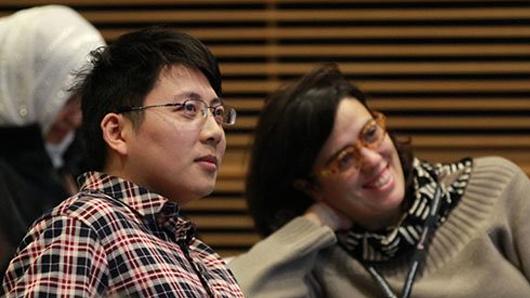
Global Clinical Scholars Research Training
This Harvard Medical School one-year, application-based certificate program provides advanced training in health care research and methods.
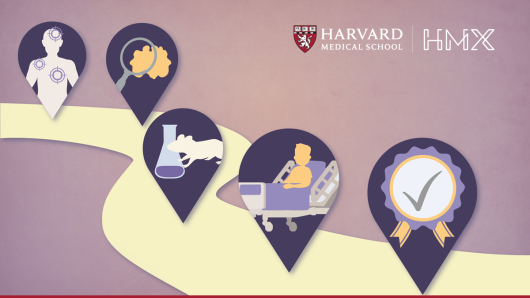
Clinical Drug Development
Learning about the process of clinical drug development has important implications for anyone working in health care and related sectors.
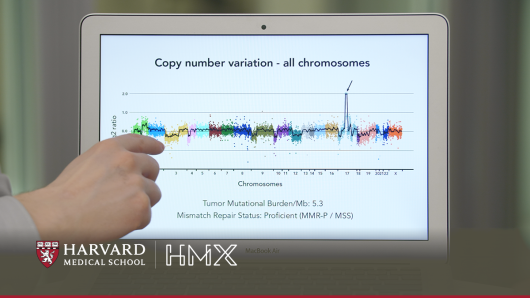
Cancer Genomics and Precision Oncology
Learn how cancer treatment is evolving due to advances in genetics., join our list to learn more.
- Technical Help
- CE/CME Help
- Billing Help
- Sales Inquiries
Research Study Design
This course provides learners with an understanding of how to improve study design, collect and analyze data, and promote reproducible research.
About this Course
The Research Study Design course provides learners with an introduction to research study design, a detailed overview of scientific inquiry, examples of various research designs, a discussion of data management methods, an introduction to statistical analysis, and sound approaches to optimize the reproducibility of research results. This course is valuable to university undergraduate and graduate students who are taking a classroom research study design course or who need a refresher on a specific aspect of research design. Research team members and Institutional Review Board members who may need an overview or refresher on research design concepts will also find the course meaningful.
This course was authored and peer-reviewed by experts.
Language Availability: English
Suggested Audiences: IRB Members and Administrators, Research Staff, Undergraduate and Graduate Students
Organizational Subscription Price: $675 per year/per site for government and non-profit organizations; $750 per year/per site for for-profit organizations Independent Learner Price: $99 per person
Course Content
Introduction to scientific research.
Provides an introduction to the steps involved in scientific research, including how to formulate a research question and the steps associated with developing a hypothesis. The module concludes with an overview of the Institutional Review Board (IRB) and other committees that may be involved in the review of research.
Recommended Use: Required ID (Language): 17581 (English) Author(s): Michael Belotto, PhD, MPH, CCRA, CCRC - BRANY; Christina Ventura-DiPersia, MPH - Hofstra University
Observational Research
Presents different types of observational research designs and includes a discussion on determining the best designs to fit with intended research activities. The module concludes with a discussion on the strengths and limitations of the designs.
Recommended Use: Required ID (Language): 17582 (English) Author(s): Michael Belotto, PhD, MPH, CCRA, CCRC - BRANY; Christina Ventura-DiPersia, MPH - Hofstra University
Interventional Research
Identifies the different types of interventional studies and designs, including special considerations associated with interventional research designs.
Recommended Use: Required ID (Language): 17583 (English) Author(s): Michael Belotto, PhD, MPH, CCRA, CCRC - BRANY; Christina Ventura-DiPersia, MPH - Hofstra University
Quantitative Research (Statistical Reasoning and Hypothesis Testing) - Part 1
Provides an overview of statistical reasoning, hypothesis testing, and research design. Explores how researchers develop research questions, generate research hypotheses, understand variability, and develop methods for explaining variability to the extent possible.
Recommended Use: Required ID (Language): 17584 (English) Author(s): Dee Andrews, PhD
Quantitative Research (Statistical Reasoning and Hypothesis Testing) - Part 2
Expands on the fundamentals of statistics and explores how statistics are used to make research decisions.
Recommended Use: Required ID (Language): 17585 (English) Author(s): Dee Andrews, PhD
Survey Research: Designing the Instrument
Provides an overview of survey research design, with a focus on developing and pilot testing the survey instrument.
Recommended Use: Required ID (Language): 17586 (English) Author(s): Seth J. Schwartz, PhD - University of Miami
Survey Research: Conducting the Research
Discusses key areas associated with conducting survey-based research, including ways to adapt surveys for new populations, different samples and sampling techniques, and ways to administer surveys.
Recommended Use: Required ID (Language): 17587 (English) Author(s): Seth J. Schwartz, PhD - University of Miami
Qualitative Research Methods
Provides an overview of qualitative research and differences among the major qualitative research designs. Highlights critical issues to consider when designing a qualitative study.
Recommended Use: Required ID (Language): 19101 (English) Author(s): Moin Syed, PhD - University of Minnesota
Mixed Methods Research
Describes mixed methods research and the rationale for using a mixed methods design. Includes an overview of the different mixed methods designs and the major design decisions to consider.
Recommended Use: Required ID (Language): 17588 (English) Author(s): Moin Syed, PhD - University of Minnesota
Data Management
Identifies the steps, concepts, and importance of data management throughout a research study. The module also discusses institutional support services that can help manage research data; methodological, technological, and regulatory considerations that affect data management practices; documentation needed to facilitate the accessibility and reproducibility of research findings; and ethical and compliance issues relating to data ownership, sharing, and protection.
Note: This module is part of the CITI Program’s Responsible Conduct of Research (RCR) series, but is recommended as part of this course. For organizations with a “Make Your Own” custom subscription, use of this module requires adding Responsible Conduct of Research (RCR) to your organization’s subscription.
Recommended Use: Required ID (Language): 20896 (English) Author(s): Julie Goldman, BS, MLIS - Harvard Medical School, Countway Library
" role="button"> Reproducibility of Research Results
Discusses factors that contribute to the lack of reproducibility and the resulting problems that can emerge. The module also describes the stakeholders affected by reproducibility problems, a collection of reproducibility initiatives, and strategies that can mitigate or prevent irreproducibility.
Recommended Use: Supplemental ID (Language): 17756 (English) Author(s): Teri A. Hamill, PhD - Nova Southeastern University
How is the Research Study Design course structured?
It consists of modules that contain detailed content, supporting visual elements, and supplemental materials (such as case studies, examples, and resources), and a quiz. Learners may complete the modules at their own pace.
Note: The Data Management and Reproducibility of Research Results modules are part of the Responsible Conduct of Research course but are included with the purchase of the Research Study Design course.
When should learners and organizations consider subscribing to the Research Study Design course?
Learners should consider this course if they need a review of scientific research and different research designs. Organizations may subscribe to the course and provide access to learners who need such training.
Who might benefit from the Research Study Design course?
This course is suitable for individuals who would benefit from an overview of the scientific method and different research designs. Individuals new to scientific inquiry or unfamiliar with some elements of scientific inquiry might find the course meaningful. In addition, individuals involved in conducting or overseeing research, such as research team members, IRB members and administrators, or non-scientific community members, might find the Research Study Design course helpful.
What are the advantages of the Research Study Design course?
The Research Study Design course was developed and reviewed by experts to provide individuals with a succinct overview of scientific methods and various research designs. The course is self-paced, convenient, and available to learners around the world.
How long will a course take me to complete?
Although completion time will vary from one learner to the next, we estimate that each module will take about 25-35 minutes to complete. The modules are designed so that learners can complete them in one sitting or in multiple sittings, and there is no time limit for course activities.
Related Content
These courses teach learners the essentials of statistical analysis via an interactive online experience.
Protocol Builder is an online protocol writing and collaboration platform that also speed up your pre-review turnaround times.
Explores the current protections, regulatory elements, and ethics tools associated with protecting human subjects in light of AI research.
Provides an overview of the structure and function of public health systems, differentiates research and practice, and reviews consent and ethical issues for public health researchers.
This webinar covers the types, limits, and ethical guidelines of peer review along with federal regulations and criteria for evaluating proposals.
This course provides a step-by-step guide to help simplify the grant writing process.
Covers various technologies and their associated ethical issues and governance approaches.
This course covers the core norms, principles, regulations, and rules governing the practice of research.
This course provides an expansive review of human subjects research topics for biomedical researchers.
This course offers a foundational overview of the critical areas associated with IRB and IRB office operations.
Privacy Overview
| Cookie | Duration | Description |
|---|---|---|
| BUY_NOW | This cookie is set to transfer purchase details to our learning management system. | |
| CART_COUNT | This cookie is set to enable shopping cart details on the site and to pass the data to our learning management system. | |
| cookielawinfo-checkbox-advertisement | 1 year | The cookie is set by GDPR cookie consent to record the user consent for the cookies in the category "Advertisement". |
| cookielawinfo-checkbox-analytics | 11 months | This cookie is set by GDPR Cookie Consent plugin. The cookie is used to store the user consent for the cookies in the category "Analytics". |
| cookielawinfo-checkbox-functional | 11 months | The cookie is set by GDPR cookie consent to record the user consent for the cookies in the category "Functional". |
| cookielawinfo-checkbox-necessary | 11 months | This cookie is set by GDPR Cookie Consent plugin. The cookies is used to store the user consent for the cookies in the category "Necessary". |
| cookielawinfo-checkbox-others | 11 months | This cookie is set by GDPR Cookie Consent plugin. The cookie is used to store the user consent for the cookies in the category "Other. |
| cookielawinfo-checkbox-performance | 11 months | This cookie is set by GDPR Cookie Consent plugin. The cookie is used to store the user consent for the cookies in the category "Performance". |
| JSESSIONID | session | Used by sites written in JSP. General purpose platform session cookies that are used to maintain users' state across page requests. |
| PHPSESSID | session | This cookie is native to PHP applications. The cookie is used to store and identify a users' unique session ID for the purpose of managing user session on the website. The cookie is a session cookies and is deleted when all the browser windows are closed. |
| viewed_cookie_policy | 11 months | The cookie is set by the GDPR Cookie Consent plugin and is used to store whether or not user has consented to the use of cookies. It does not store any personal data. |
| XSRF-TOKEN | session | The cookie is set by Wix website building platform on Wix website. The cookie is used for security purposes. |
| Cookie | Duration | Description |
|---|---|---|
| bcookie | 2 years | This cookie is set by linkedIn. The purpose of the cookie is to enable LinkedIn functionalities on the page. |
| lang | session | This cookie is used to store the language preferences of a user to serve up content in that stored language the next time user visit the website. |
| lidc | 1 day | This cookie is set by LinkedIn and used for routing. |
| pll_language | 1 year | This cookie is set by Polylang plugin for WordPress powered websites. The cookie stores the language code of the last browsed page. |
| Cookie | Duration | Description |
|---|---|---|
| _gat | 1 minute | This cookies is installed by Google Universal Analytics to throttle the request rate to limit the colllection of data on high traffic sites. |
| Cookie | Duration | Description |
|---|---|---|
| _ga | 2 years | This cookie is installed by Google Analytics. The cookie is used to calculate visitor, session, campaign data and keep track of site usage for the site's analytics report. The cookies store information anonymously and assign a randomly generated number to identify unique visitors. |
| _gat_UA-33803854-1 | 1 minute | This is a pattern type cookie set by Google Analytics, where the pattern element on the name contains the unique identity number of the account or website it relates to. It appears to be a variation of the _gat cookie which is used to limit the amount of data recorded by Google on high traffic volume websites. |
| _gat_UA-33803854-7 | 1 minute | This is a pattern type cookie set by Google Analytics, where the pattern element on the name contains the unique identity number of the account or website it relates to. It appears to be a variation of the _gat cookie which is used to limit the amount of data recorded by Google on high traffic volume websites. |
| _gcl_au | 3 months | This cookie is used by Google Analytics to understand user interaction with the website. |
| _gid | 1 day | This cookie is installed by Google Analytics. The cookie is used to store information of how visitors use a website and helps in creating an analytics report of how the website is doing. The data collected including the number visitors, the source where they have come from, and the pages visted in an anonymous form. |
| _hjAbsoluteSessionInProgress | 30 minutes | No description available. |
| _hjFirstSeen | 30 minutes | This is set by Hotjar to identify a new user’s first session. It stores a true/false value, indicating whether this was the first time Hotjar saw this user. It is used by Recording filters to identify new user sessions. |
| _hjid | 1 year | This cookie is set by Hotjar. This cookie is set when the customer first lands on a page with the Hotjar script. It is used to persist the random user ID, unique to that site on the browser. This ensures that behavior in subsequent visits to the same site will be attributed to the same user ID. |
| _hjIncludedInPageviewSample | 2 minutes | No description available. |
| _hjIncludedInSessionSample | 2 minutes | No description available. |
| _hjTLDTest | session | No description available. |
| _uetsid | 1 day | This cookies are used to collect analytical information about how visitors use the website. This information is used to compile report and improve site. |
| BrowserId | 1 year | This cookie is used for registering a unique ID that identifies the type of browser. It helps in identifying the visitor device on their revisit. |
| CFID | session | This cookie is set by Adobe ColdFusion applications. This cookie is used to identify the client. It is a sequential client identifier, used in conjunction with the cookie "CFTOKEN". |
| CFTOKEN | session | This cookie is set by Adobe ColdFusion applications. This cookie is used to identify the client. It provides a random-number client security token. |
| CONSENT | 16 years 5 months 4 days 4 hours | These cookies are set via embedded youtube-videos. They register anonymous statistical data on for example how many times the video is displayed and what settings are used for playback.No sensitive data is collected unless you log in to your google account, in that case your choices are linked with your account, for example if you click “like” on a video. |
| vuid | 2 years | This domain of this cookie is owned by Vimeo. This cookie is used by vimeo to collect tracking information. It sets a unique ID to embed videos to the website. |
| Cookie | Duration | Description |
|---|---|---|
| bscookie | 2 years | This cookie is a browser ID cookie set by Linked share Buttons and ad tags. |
| IDE | 1 year 24 days | Used by Google DoubleClick and stores information about how the user uses the website and any other advertisement before visiting the website. This is used to present users with ads that are relevant to them according to the user profile. |
| MUID | 1 year 24 days | Used by Microsoft as a unique identifier. The cookie is set by embedded Microsoft scripts. The purpose of this cookie is to synchronize the ID across many different Microsoft domains to enable user tracking. |
| test_cookie | 15 minutes | This cookie is set by doubleclick.net. The purpose of the cookie is to determine if the user's browser supports cookies. |
| VISITOR_INFO1_LIVE | 5 months 27 days | This cookie is set by Youtube. Used to track the information of the embedded YouTube videos on a website. |
| YSC | session | This cookies is set by Youtube and is used to track the views of embedded videos. |
| yt-remote-connected-devices | never | These cookies are set via embedded youtube-videos. |
| yt-remote-device-id | never | These cookies are set via embedded youtube-videos. |
| Cookie | Duration | Description |
|---|---|---|
| _app_session | 1 month | No description available. |
| _gfpc | session | No description available. |
| _uetvid | 1 year 24 days | No description available. |
| _zm_chtaid | 2 hours | No description available. |
| _zm_csp_script_nonce | session | No description available. |
| _zm_cta | 1 day | No description |
| _zm_ctaid | 2 hours | No description available. |
| _zm_currency | 1 day | No description available. |
| _zm_mtk_guid | 2 years | No description available. |
| _zm_page_auth | session | No description available. |
| _zm_sa_si_none | session | No description |
| _zm_ssid | session | No description available. |
| AnalyticsSyncHistory | 1 month | No description |
| BNI_persistence | 4 hours | No description available. |
| BrowserId_sec | 1 year | No description available. |
| CookieConsentPolicy | 1 year | No description |
| cred | No description available. | |
| f | never | No description available. |
| L-veVQq | 1 day | No description |
| li_gc | 2 years | No description |
| owner_token | 1 day | No description available. |
| PP-veVQq | 1 hour | No description |
| renderCtx | session | This cookie is used for tracking community context state. |
| RL-veVQq | 1 day | No description |
| twine_session | 1 month | No description available. |
| UserMatchHistory | 1 month | Linkedin - Used to track visitors on multiple websites, in order to present relevant advertisement based on the visitor's preferences. |
| web_zak | past | No description |
| wULrMv6t | No description | |
| zm_aid | past | No description |
| zm_haid | past | No description |
Stack Exchange Network
Stack Exchange network consists of 183 Q&A communities including Stack Overflow , the largest, most trusted online community for developers to learn, share their knowledge, and build their careers.
Q&A for work
Connect and share knowledge within a single location that is structured and easy to search.
What is the relationship between graduate coursework and research?
I feel like after graduate students pass their qualifying exams, they still have a lot of learning to do before they're knowledgeable enough in a specific area to understand and work on the open questions in that area. But how do they get there? Do they just take advanced courses in the area of interest, or are they expected to read up on their research area outside of coursework? If the second, should they be doing this while they're still taking classes, or do they start doing this after they're done with their coursework?
- research-process
- graduate-school
3 Answers 3
Yes, you're right, "starting research" prior to an adequate basic education can result in huge wastes of time. But it also makes little sense to "wait a few years" until all the required coursework is done. And, yes, even then, one is not over-educated.
Seriously, I think (and recommend to my students) that they maintain several different threads. The two main ones are attention to standard core material and more advanced courses, while also trying to skip forward to read about current events. The trickier third thread is trying to back-fill from current events to "standard material", as needed.
Almost any choice of "single thread" seems misguided.
- I'm in math department and this answer is closer to what I've heard from my (provisional) advisor. I think the answer to OP's question highly depends on the department. – user22080 Commented Oct 30, 2015 at 21:07
It depends. My PhD supervisor got me involved from Day 1 in research projects in his lab. He was down on programs where things were much more serial (do the required classes, pass the qual, do a proposal, do the research, defend). His students all had some research tasks from the beginning. If the student was unprepared for the task, there were papers to read or book suggestions, etc. This worked really well for me, though it may have resulted in me being somewhat under-prepared for the quals the first time I took them! I eventually passed and graduated.
Some advisors and programs take a different approach. They really want the student to concentrate on nothing but getting through courses and the quals until they pass the quals. Then it's the proposal (if they require one). How one gets the knowledge to get from proposal to defense is up to the student and the advisor to work out. I didn't complete my coursework requirement until late in my program, so I used courses to close knowledge gaps where a relevant course was available. Where it wasn't, I worked through books and papers that I could find that helped.
While I totally agree with the other answers, I would like to point out that there is a third variety out there in the market as well, over and above the two major approaches to coursework already pointed out. At least to me, this appears to be a more evolved approach, but of course, neither one is flawless and universally applicable (i.e. a lot depends on individual cases).
The idea is - first figure out how much do you need to get started with proper research-level work. This would be difficult for the student to work out on his/her own, and definitely requires inputs from the adviser. Once this part has been marked out, this should be approached at full throttle, i.e. no actual research till this part is behind you. After this is done, and in parallel with the actual research work thus started, keep on expanding your sphere of knowledge. A good idea is devote a stipulated number of hours everyday, forcibly detaching yourself from the actual problem, and just reading around the part you people decided on as minimum. The more you know, the better prepared you will be for your research, but it is not sensible to wait indefinitely for the same to happen, especially since there are (typically) progress metrics also involved ( or something like an end-semester presentation of the work done in that semester, etc. ).
IMO, the advantage of this strategy is - you are not deferring research work unnecessarily, and also, not just hitting on a research-level problem without being in any position to do so. And with time, the situation certainly gets better and better.

You must log in to answer this question.
Not the answer you're looking for browse other questions tagged research-process graduate-school coursework ., hot network questions.
- The rules of alliteration in Germanic poetry as they pertain to single syllable triple consonant clusters starting with the letter s
- How can I enable read only mode in microSD card
- The connection between determinants and eigenvalues
- Scammed applying for ESTA, looking for travel options
- What is the meaning of "Wa’al"?
- Meaning of あんたの今 here
- Definition of the subcategory in book "Category Theory for Computing Science"
- What is a "general" relation algebra?
- Are 1/20 undocumented immigrants married to American citizens?
- Rewarding the finding of zeroes of a hash function
- Numerical approximation of the integral by using data
- Is there a category even more general than "thing"?
- How to duplicate a lot of windows all in different sizes when the frames are the same?
- Why am I unable to distribute rotated text evenly in Adobe Illustrator 2024?
- When should a function be given an argument vs getting the data itself?
- Im having problems with translating this script. Can someone please help me?
- Would a PhD from Europe, Canada, Australia, or New Zealand be accepted in the US?
- Do differently rendered measure numbers convey meaning?
- Tiny book about a planet full of man-eating sunflowers
- Short story about a group of astronauts/scientist that find a sentient planet that seems friendly but is not
- What is the meaning of "Attempt any air"?
- Who is a "sibling"?
- What is the explicit list of the situations that require RAII?
- Cohen-Lenstra heuristics for ideal class groups over non-abelian extensions
Which Master? Postgraduate Taught vs Research (Differences)

Find Master ’ s degrees in Europe now
💡 Taught Masters vs Research Masters:
There are many types of Master’s degrees, and most of these are Taught Masters . In the United Kingdom, such programmes are also called postgraduate taught or PGT for short. They typically require completing a set number of modules and a thesis (also called dissertation), plus sometimes work experience through a placement. The type of dissertation you will undertake will depend on the type of Master’s degree you are enrolled in, and might for example include your own small research project. Most postgraduate taught degrees have these elements of independent work and research to varying extents.
In contrast, a Research Master ’ s degree will focus on, you guessed it, research. In the UK, such programmes are also called postgraduate research or PGR (although this term may also refer to doctorate programmes). Rather than attending classes every semester and completing module assignments, you will need to focus on an independent research project – under supervision, of course. The course will still include a few taught modules, most often on research methodologies, but it will require you to work independently for most of the time.
Master’s degrees in the UK are usually one year full-time or two years part-time, but in other countries the duration may differ.
Remember: A final dissertation will be compulsory for all Master ’ s degrees. However, a dissertation for an MRes will typically be longer than that for an MA or MSc.
Typically, Research Masters will lead to an MRes degree. At some universities, however, you'll instead be awarded an MPhil (Master of Philosophy) or MLitt (Master of Letters). For more information, have a look at our detailed glossary.
🤔 Is a Research Master’s the same as a PhD?
No, a Research Master’s degree is not the same as a PhD. Although for both degrees you will need to complete a dissertation based on an independent research project, there are notable differences:
- The first difference is the duration : A Master’s degree will typically last one to two years, while a PhD usually takes up about three to five years. The research project you’ll undertake during a doctorate degree will therefore be longer and broader than one you would pursue in a Master’s degree.
- As a PhD student, you’re expected to publish research papers in journals before you are awarded your degree. MRes students might occasionally do that during or after their studies, but it’s rarely obligatory.
- As a PhD student, you’ll most often be expected to take on other duties , such as teaching.
If you wish to pursue doctoral research and a career in academia, a research Master’s degree could be a great option for you as it will allow you to get to grips with and gather valuable experience and training on independent research early on in your studies.
👀 Overview: What’s the difference?
There are a few differences between Taught Masters and Research Masters , and not all of them are obvious.
The table below outlines some of the main elements to consider when choosing which of the two degrees to pursue after your Bachelor’s degree:
| Differences | Taught Master’s degree | Research Master’s degree |
|---|---|---|
| Fixed and structured | Flexible | |
| Often ca. 2/3 taught courses, ca. 1/3 research project or dissertation | Mostly independent research, but could have a couple of taught modules as well | |
| Broader understanding of a particular discipline | Deeper insight into a specific subject or issue | |
| Typically Master of Science (MSc), Master of Arts (MA), Master of Laws (LLM), Master of Business Administration (MBA), etc. | Typically Master of Research (MRes), Master of Philosophy (MPhil), Master of Letters (MLitt) | |
| Students that want more advanced knowledge on a specific discipline before entering the job market or pursuing academic research. | Students that prefer working on an in-depth research project and are interested in staying in academia. |
Study in Europe: Find your Master ’ s degrees
🏛️ Which should you choose?
The choice between a taught Master’s and a research Master’s depends on a few factors.
- First of all, do you enjoy research more than coursework? Then an MRes may be more suitable – but remember that any Master’s degree, especially an MSc, will have a research component.
- Then, it’s crucial to understand how you like to work and study. Do you particularly enjoy working independently? Perhaps then you can consider an MRes. In a taught Master’s, you’ll have a more solid structure, timetables and regular deadlines to keep you on track, but these may not be as readily available during an MRes, so consider which environment you are more likely to thrive in.
- Another important consideration is what you want to do after your Master’s degree. If you want to enter the labour market immediately, and you are not particularly interested in focusing on research training, then perhaps a taught Master’s degree is more suited.
💸 Is there a difference in fees between Taught and Research Masters?
No, normally, you won’t find a huge difference in tuition fees between taught and research Master’s degrees. Only in some instances, Postgraduate Research Masters tend to be cheaper.
📝 Can I do a PhD after taking a Taught Master’s Degree?
Yes, you can pursue a PhD after any type of Master’s course, provided that you have a degree in a relevant subject. All taught postgraduate degrees involve some independent work and research, especially for your dissertation, which will prepare you for further research should you choose to pursue a PhD.
Some taught Masters require more independent research work than others, particularly when it comes to the dissertation after completing the taught modules. Consult the curriculum or ask admissions staff to get a better idea of what to expect.
While a taught Master’s degree won’t prevent you from doing a PhD further down the line, it’s vital that you have a good idea of what requirements you will have to fulfil in order to be admitted to the PhD, and how you can best prepare.
If you already have a clear idea of what field you’d like to conduct your doctoral research in, you could take advantage of the joint Master’s – PhD programmes on offer at some universities.
These four-year programmes – also called “combined” or “integrated” degrees – offer the chance to complete a Master’s degree in the first year and to progress seamlessly to PhD research in the next three.
Looking for Masters in Europe? Have a look at these English-taught degrees 👀

Author: Claudia Civinini
Claudia has many years of experience as a reporter and writer on international education and student mobility. Originally from Italy, she holds a BA in Communication and Media Studies from the University of Genova; a Graduate Diploma in Education, Secondary Education and Teaching from the Australian Catholic University; and a joint MSc in Educational Neuroscience from UCL and Birkbeck, University of London. Claudia has previously worked as Chief Reporter for the English Language Gazette, as Senior Reporter for the PIE News (Professionals in International Education), and as Reporter for Tes.

You might be interested in this:

- See all results
Graduate Certificate of Research in Medicine, Health and Human Sciences
CRICOS CODE: 115573G
Ask a question
If you’d like to know more about studying at Macquarie University, we’d love to hear from you.
Submit an enquiry
We’ll find the answer and email you back.
Call one of our course specialists
Monday to Friday: 9am - 5pm AEDT
View our campus
Check our calendar for up-to-date times.
Related courses
Graduate certificate of research in business.
Full time: 0.5 years
In person, on campus
Build a double degree
Explore your options and complete two degrees in less time.
Tepper School of Business

Ph.D. Program in Operations Research
The ph.d. program in operations research stresses optimization techniques leading to decision-making algorithms and the development of new models for management science applications..
The Tepper School's doctoral program in operations research (OR) is designed to encourage students to make contributions toward basic scientific knowledge in the area. This knowledge can take several forms including:
- The derivations of fundamental results of an analytical or mathematical nature that lead to the development of algorithms for aiding decision-making
- The development of new analytical models appropriate for management science applications in areas such as Marketing, Operations, and Finance
- Controlled experimentation that leads to empirical results that make efficiency comparisons possible among algorithms
A major goal of the program is to train students to recognize operations research problems in real-world situations, and to give them the opportunity to learn about the deployment of operations research models in one or more of these substantive areas. Towards this goal, the program provides the opportunity to develop knowledge of functional areas of business to which optimization can be applied such as Marketing, Operations and Finance. There is a rich tradition of graduates from the program going on to successful careers in these areas both in academia (in business schools, engineering schools in IE and OR departments as well as in Math and Computer Science departments) and industry.
Course of Study
The basic operations research courses offered include: linear, nonlinear, integer and dynamic programming; graph theory and network optimization; convex optimization and convex analysis; and stochastic models. Each course is taught by a faculty member who is actively pursuing research in the subject area. Since classes are usually small, students frequently meet informally with their instructors. The third semester competence examination is based on the areas covered in these courses.
The research papers assigned for the first and second summers of graduate study are designed to give students an early introduction to research work. The paper may be done individually or jointly with other students or faculty members. Easy interaction in the Tepper School with researchers in the other areas of business and economics and in such related areas as computer science, machine learning, and statistics encourages the application of operations research in imaginative new directions.
In many cases, work on these papers leads to the work on the Ph.D. dissertation, which can begin as soon as the student has passed the third-semester qualifying examination.
Almost invariably, by the end of their second year, if not earlier, students have already worked on professional problems with some of the faculty. For this reason, student working papers written in collaboration with a faculty member are common.
Our History
Carnegie Mellon has pioneered several important developments in both theoretical and applied operations research. Geometric programming, chance constrained programming, and the applications of linear programming to capital budgeting and cost management were among the accomplishments of the '50s and early '60s. Since 1968, when the doctoral program in operations research was started, the Tepper School has initiated several new developments in integer and nonconvex programming, enumerative methods, cutting plane theory, disjunctive programming, constraint programming, network design, algorithm design, machine learning, data mining, and scheduling models.
Recently, the group has pioneered advances in Approximation Algorithms for Network Design, as well as theory and applications of Modern Convex Optimization. Examples on the Selected Research Topics page illustrate the basic research currently in progress, and examples of new operations research applications can be found elsewhere on the Doctoral Program website.
Research Topics
- Mixed-Integer Programming
- Convex Optimization
- Benders Decomposition
- Branch and Price
- Approximation and Online Algorithms
- Network Design
- Analytical Models in Marketing and Operations
- Connections with Artificial Intelligence
- Interplay between Estimation and Optimization
- Bayesian Optimization
- Massively Distributed and Parallel Algorithm Design
- Machine Learning
- Cultural Factors
- Ethics of Artificial Intelligence
Many of our students are very active in the Carnegie Mellon INFORMS Student Chapter . To learn about the joint PhD program in Algorithms, Combinatorics and Optimization, please visit the webpage http://aco.math.cmu.edu/
P lease visit our Ph.D. Student Profiles page t o view the profiles of our current doctoral candidates.
Program Details
- Requirements
New Research Interest – Ethics of Artificial Intelligence
Ethics and AI is an emerging research interest among faculty members in Operations Research and Ethics. Research topics include algorithmic bias, models of equity and efficiency, machine ethics, and OR/AI for the common good. Given the importance and timeliness of this topic, Tepper faculty members have submitted a grant proposal to the National Science Foundation to support research in this domain.
- Tepper 2023
- Course List
- Academic Calendar
- Privacy Policy
- Statement of Assurance
- Tepper Information Center
- Tepper Gear Store

- Domestic or International?
- Current students
- My Courses 0

Research degree entry requirements
Study at a world-leading university
Are you looking to start a Deakin research degree or PhD? Before starting your application, read through the research degree entry requirements, from research experience to English language requirements, to help you get started.
Minimum entry requirements
To apply for a research degree, you will need to demonstrate your research ability and meet the minimum entry requirements from a recognised tertiary institution. The qualifications required to study a research degree must have been obtained less than five years prior to applying to Deakin.
If the qualifications do not meet this requirement, the applicant must provide an additional portfolio of evidence of equivalent research or professional experience and outputs from the last five years. Additional evidence may include but is not limited to workplace experience, verified reports, reviews, conference presentations, publications and data analysis. For more information about qualifications, you can check the Australian Qualifications Framework , the national policy for regulated qualifications in Australian education and training.
Doctoral degree
- completion of a research project in a related area, including a thesis that is equivalent to at least 25% of a year’s full-time study at level 8 or 9 of the Australian Qualifications Framework, with achievement of a grade for the project equivalent to a Deakin grade of 70% or equivalent; or a masters degree by research in a related area.
Masters degree (research)
- completion of a research project including a thesis that is equivalent to at least 25% of a year’s full-time study at level 8 or 9 of the Australian Qualifications Framework, with achievement of a grade for the project equivalent to a Deakin grade of 65% or equivalent.
Master of philosophy
This option is offered by the School of Medicine.
- coursework masters degree with a minimum credit average (65% or equivalent) in the same discipline as the proposed research thesis; or
- bachelor degree with a distinction average (70% or equivalent) during third year in the same discipline as the proposed research thesis; or
- completion of the pre-clinical component of the Doctor of Medicine (or equivalent degree) at the postgraduate level.
Prior learning equivalent
Qualification/equivalent research experience:
Prior learning equivalent to a qualification at least at Australian Qualifications Framework level 8 and research experience with outputs that is sufficient to prepare you for research degree candidature.
Required standard of achievement for admission to a masters degree (research) or doctoral degree: Sufficiency of research experience and standard of research outputs to be determined with reference to evidence that might include independently peer-reviewed publications, research-related awards or prizes and/or professional reports.
Grade equivalence
This table provides a guide to grade equivalence at Deakin. It is an indicator only and does not automatically equate to other institution grades.
| % range | Description | Deakin Honours Grade |
|---|---|---|
| 80%+ | First class | H1 |
| 70-79% | Upper second class | H2A |
| 60-69% | Lower Second class | H2B |
Studying a PhD at [Deakin’s Applied AI Institute] A2I2 helped me further my skills in artificial intelligence and I’m excited to apply this knowledge to create a better, more sustainable society.
Arun Kumar AV
PhD in artificial intelligence
Access competitive financial support
We have hundreds of government and University funded scholarships available for HDR students, meaning you have more time to focus on impactful research.
English language requirements
If your first language isn't English, you must provide evidence of English proficiency. The English language requirements at Deakin University are aligned to the International English Language Testing System (IELTS) standards and the Common European Framework of Reference for Languages (CEFR). More information about entry requirements can be found on the Higher Degree by Research (HDR) course pages .
Supporting your application
Research degree and PhD candidates have the option to provide copies of peer-reviewed publications as evidence of your research experience. This should include details about the nature of your research ability, specifically length and content of the program or research, with particular attention to the standard of any research component.
Prior publications
It is possible to be admitted to candidature to produce a thesis based on prior publications. To be admitted, the publications to be included in this thesis must form a coherent body of work that demonstrates a substantial original contribution to knowledge on the part of the applicant. The publications must normally have been produced within the last 10 years. The research leading to the publications must have been conducted in a way consistent with the University’s research integrity requirements .
Any part of the publications submitted for another degree must be identified and cannot be considered as part of the contribution to knowledge that is to be demonstrated in the thesis.
Email the HDR candidature office to learn more

Application assessment
Deakin assesses each application on its merits, and final decisions are at the discretion of the University rather than individual faculty members. The University must also consider supervisor availability, the suitability of the proposed project, strategic university goals and available funding.
Join over 6500 research degree candidates from around the world who have enrolled at Deakin. Contact us with any questions about research at Deakin.
Deakin Research
Email Deakin Research
Domestic HDR candidates
Email the HDR candidature office
Discover more
Which best describes you?
Domestic student
- an Australian citizen;
- an Australian permanent resident;
- an Australian permanent humanitarian visa holder;
- a New Zealand citizen.
International student
- a temporary resident (visa status) of Australia;
- a permanent resident (visa status) of New Zealand;
- a resident or citizen of any other country, intending to study on a student visa.
We use cookies to improve your experience. You consent to the use of our cookies if you proceed. Visit our Privacy policy for more information.




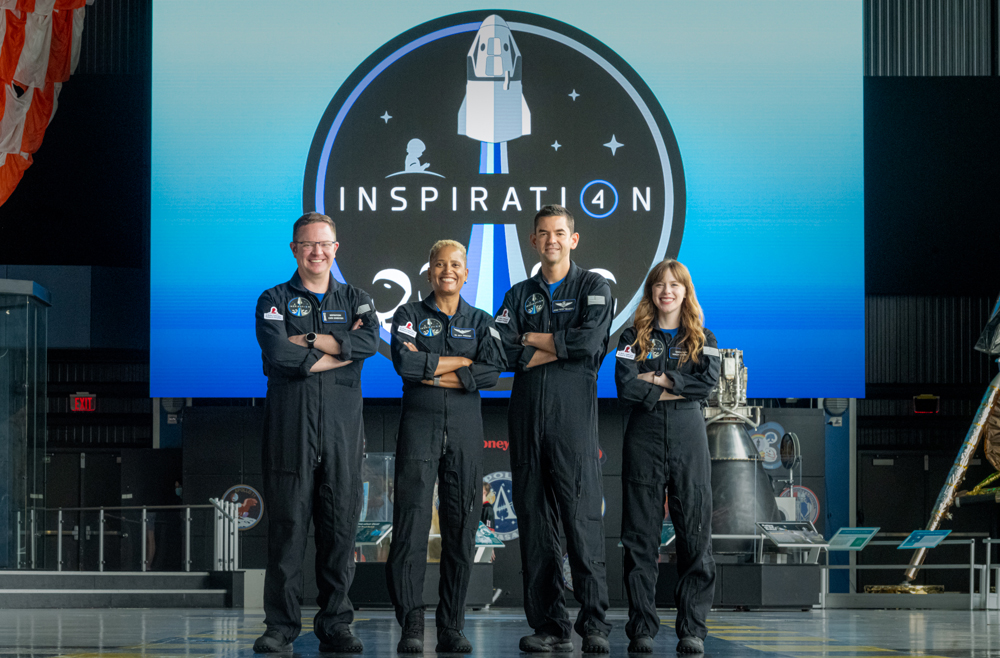

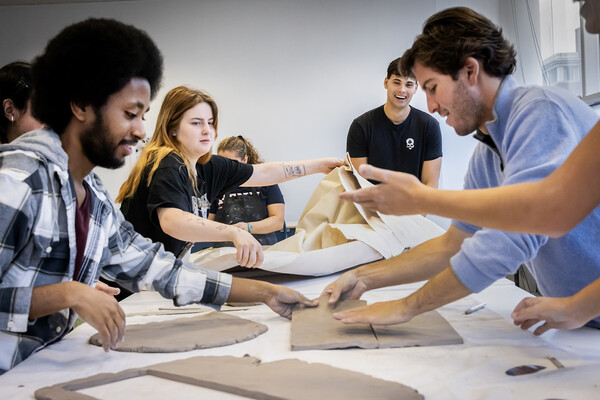










COMMENTS
4.9. (150 reviews) Beginner · Course · 1 - 3 Months. research methodology. research methods. research paper. research methodologies. researcher management and leadership training. research proposal: initiating research.
4 mins. It can be a little tricky figuring out which postgraduate degree is for you. That's why we've done the work for you to clarify the differences between a coursework degree and a research degree, and where each could take your career. Tl;dr: The main difference between these two styles is coursework has classes and research has a thesis.
There are 4 modules in this course. This MOOC is about demystifying research and research methods. It will outline the fundamentals of doing research, aimed primarily, but not exclusively, at the postgraduate level. It places the student experience at the centre of our endeavours by engaging learners in a range of robust and challenging ...
Explore online courses about research methods and more. Develop new skills to advance your career with edX.
2. Duration. Another difference between course-based and research-based master's degree programs is the length of time it takes to complete the program. Course-based programs typically take one to two years to complete, while research-based programs usually take two to three years to complete due to the time required for extensive research ...
Both coursework and dissertations hone a student's research and writing abilities, which are crucial tools for finishing academic studies. Coursework assignments, ranging from essays to research papers, equip students with the skills to: Formulate Research Questions. Coursework often involves tasks that require students to identify and ...
There are 4 modules in this course. This course focuses on research methodologies. In this vein, the focus will be placed on qualitative and quantitative research methodologies, sampling approaches, and primary and secondary data collection. The course begins with a discussion on qualitative research approaches, looking at focus groups ...
Don't worry, this course has you covered. This introductory program was created by JSTOR to help you get familiar with basic research concepts needed for success in school. The course contains three modules, each made up of three short lessons and three sets of practice quizzes. The topics covered are subjects that will help you prepare for ...
At UTS, you could pursue postgraduate studies by coursework or research. Postgraduate Degree Coursework Doing it by coursework means, you'll attend classes, write assessments, sit for exams and work your way through a set of subjects - a structured program. You could potentially add a research project using your elective.
Global Clinical Scholars Research Training. This Harvard Medical School one-year, application-based certificate program provides advanced training in health care research and methods. $14,900 - $15,900. Register by Sep 11. Browse the latest Research courses from Harvard University.
There are a few key differences between postgraduate coursework and postgraduate research programs. Postgraduate Coursework. Postgraduate coursework programs deliver content through a set unit program (similar to an undergraduate Bachelor degree), but at a more advanced level. Coursework will allow you to deepen your knowledge within a discipline, or to pursue a new or additional study area at ...
Research Masters require students to undertake extensive research training, while postgraduate taught Masters involve a mixture of lectures, seminars and coursework. Taught Masters (PGT) degrees are a lot like undergraduate programmes. You'll complete a series of modules following a set timetable of seminars, lectures and other activities.
<p>Get an introduction to what qualitative research is, the types of qualitative research methods, the appropriate situations to apply qualitative methods, and how to conduct your own qualitative research. You learn to build a research protocol and use various techniques to design, conduct, analyze and present an informative research study.</p> <p>At the end of the course, you are expected to ...
Foundations of Clinical Research. This Harvard Medical School six-month, application-based certificate program provides the essential skill sets and fundamental knowledge required to begin or expand your clinical research career. Learn More. September 28, 2024 - April 6, 2025. $6,900 - $7,900.
it lessens the culture-shock for those going straight from fully-taught study to a research degree. Share. Improve this answer. Follow ... In Germany, for instance, doctoral programs almost never require coursework as part of the research program requirements (although it may be mandated for purposes off establishing degree equivalency, if you ...
About this Course. The Research Study Design course provides learners with an introduction to research study design, a detailed overview of scientific inquiry, examples of various research designs, a discussion of data management methods, an introduction to statistical analysis, and sound approaches to optimize the reproducibility of research ...
4. Yes, you're right, "starting research" prior to an adequate basic education can result in huge wastes of time. But it also makes little sense to "wait a few years" until all the required coursework is done. And, yes, even then, one is not over-educated. Seriously, I think (and recommend to my students) that they maintain several different ...
The choice between a taught Master's and a research Master's depends on a few factors. First of all, do you enjoy research more than coursework? Then an MRes may be more suitable - but remember that any Master's degree, especially an MSc, will have a research component. Then, it's crucial to understand how you like to work and study.
Coursework is the units a student has to take in order to graduate from a college or university. It includes coursework in mathematics, English, humanities, and social science. In comparison, research is a single student's project, or series of projects, which may take longer to complete, but does not necessarily contain coursework or reading.
Some Masters by Coursework also require the completion of a minor thesis as part of the course. Dependent on the course, part-time and online study options are available. For more information, please see our Postgraduate study at ECU webpage. A Master by Research involves the submission of a completed thesis based on an independent research ...
Access more than 40 courses trusted by Fortune 500 companies. Capture your audience's attention with smarter emails, Slacks, memos, and reports. Start Course. Learn More & See All Courses.
Acknowledgement of Country. Macquarie University acknowledges the Traditional Custodians of the land where Macquarie University is situated, the Wallumattagal Clan of the Dharug Nation - whose cultures and customs have nurtured, and continue to nurture, the land since time immemorial.
Course of Study. The basic operations research courses offered include: linear, nonlinear, integer and dynamic programming; graph theory and network optimization; convex optimization and convex analysis; and stochastic models. Each course is taught by a faculty member who is actively pursuing research in the subject area. Since classes are ...
Join for free. Learn Research Methods or improve your skills online today. Choose from a wide range of Research Methods courses offered from top universities and industry leaders. Our Research Methods courses are perfect for individuals or for corporate Research Methods training to upskill your workforce.
completion of a research project in a related area, including a thesis that is equivalent to at least 25% of a year's full-time study at level 8 or 9 of the Australian Qualifications Framework, with achievement of a grade for the project equivalent to a Deakin grade of 70% or equivalent; or a masters degree by research in a related area.
The second year experience features the core research design and methodology sequence and an Intercultural Communication course, together with gateway courses in the key thematic areas in which students choose to concentrate their coursework during their third year. Students at SIS also focus in depth on a particular region of the world.
This case study explores GoodRx's innovative approach to cost savings, along with a detailed look at the complexities within the U.S. pharmaceutical supply chain—and offers a closer look at GoodRx's workarounds to cut the cost of prescription medications.
Joel Koopman is the TJ Barlow Professor of Business Administration at the Mays Business School of Texas A&M University. His research interests include prosocial behavior, organizational justice ...
First study of civilian space crew charts course for research as commercial flight heats up ... We strive to bring you faculty, staff, and student profiles, research updates, and the latest happenings on campus. Office of University Communications Suite 200 3901 Walnut Street Philadelphia, PA 19104-3608 215.898.8721 [email protected].
From epidemiological research to communities of health, healthcare financing to service commissioning, this course covers the key concepts. In the UK, the increasing demand for health care alongside the reduction in funding for healthcare systems means there is an increased need for a trained, effective workforce of public health professionals.